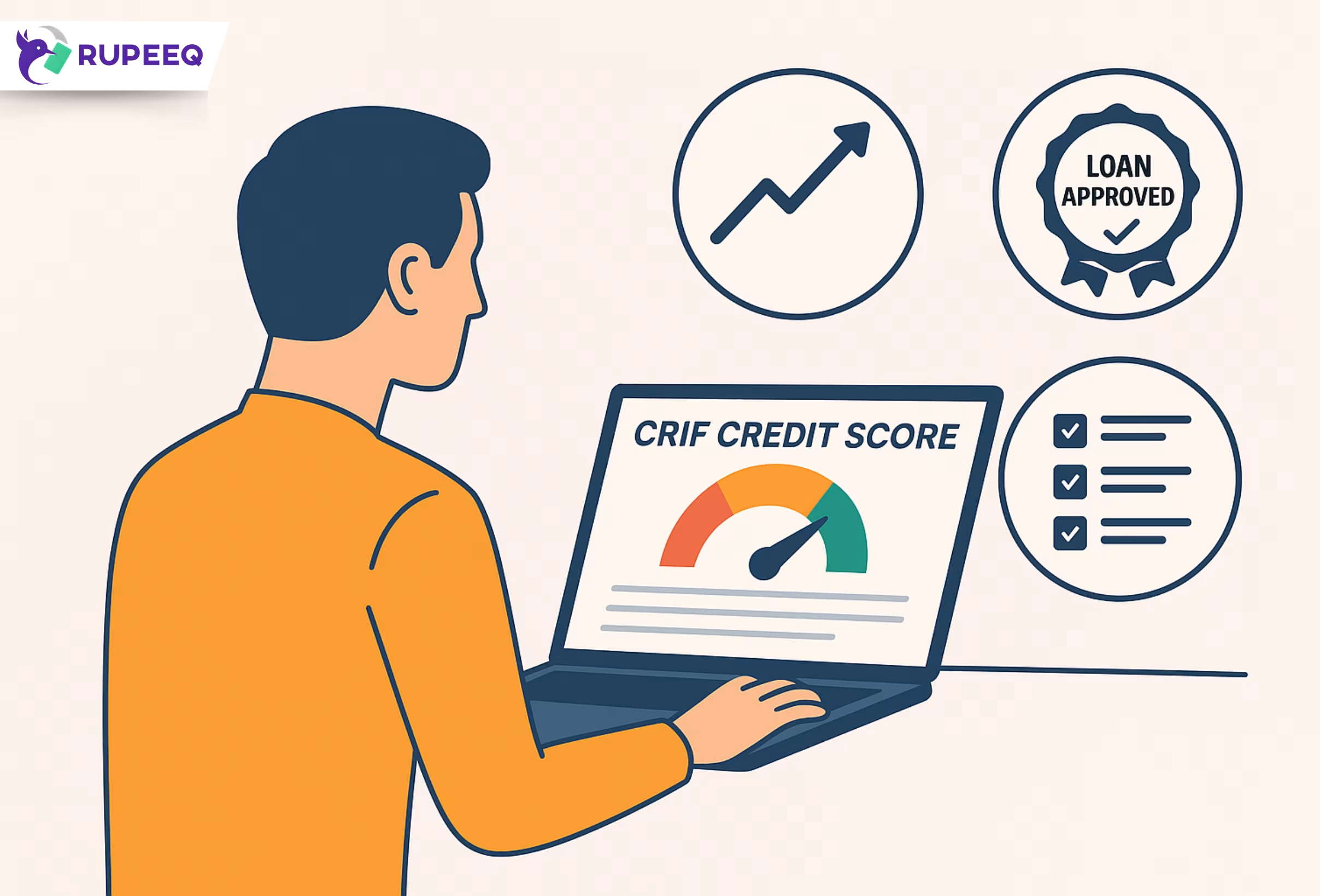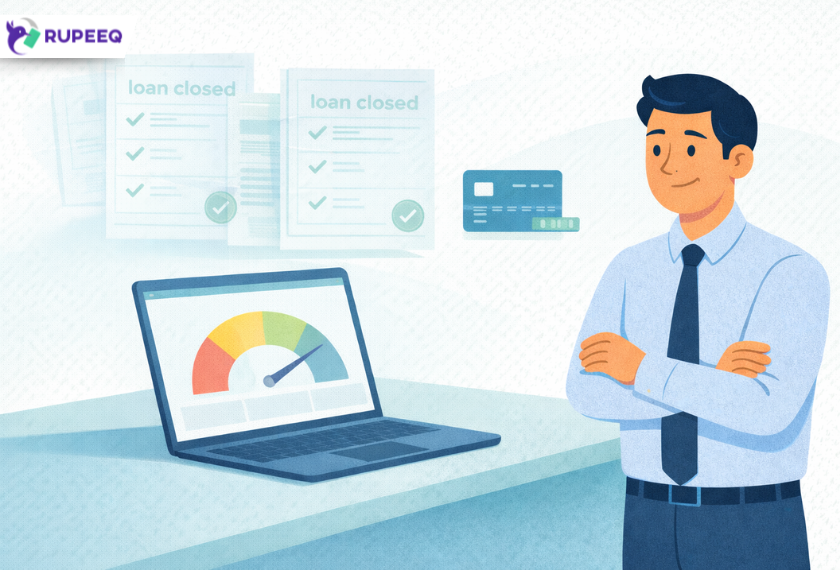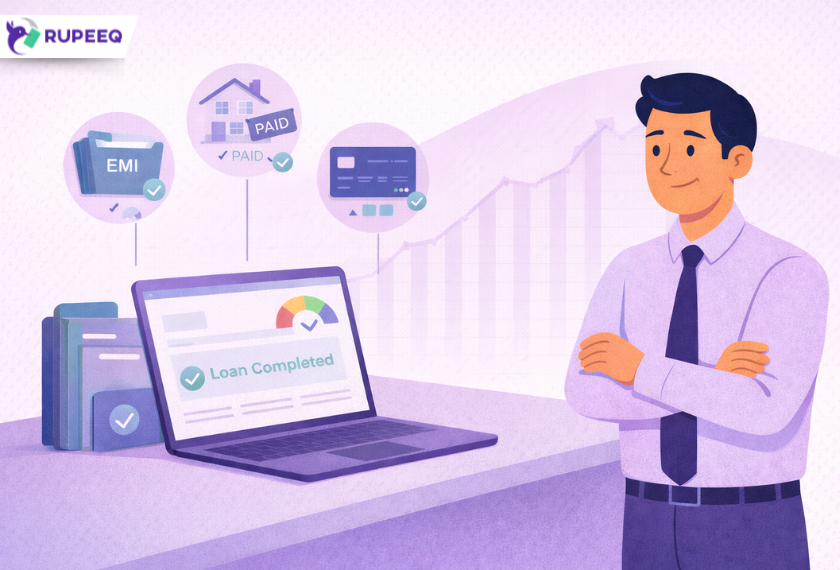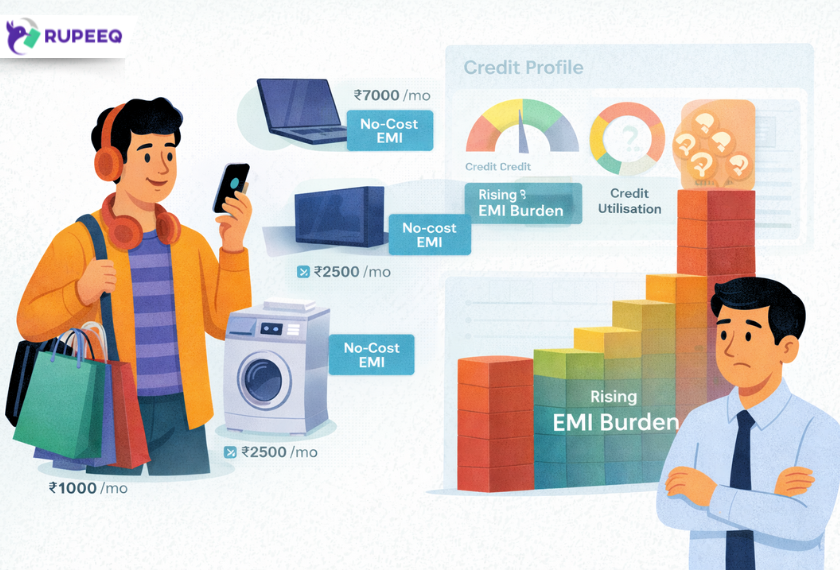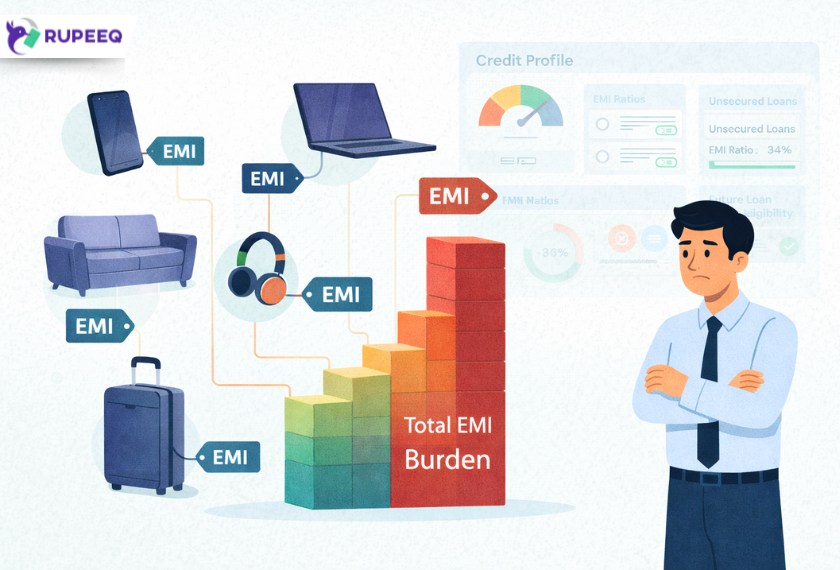Your CRIF credit score is more than just a number—it’s often the deciding factor between getting your loan approved or rejected. Whether you’re applying for instant personal loan, home loan, car loan, or credit card, your credit score shows lenders how responsible you are with borrowing. A good score can mean lower interest rates and higher loan amounts, while a poor score can mean higher rates, stricter conditions, or outright rejection.
In this guide, we’ll break down exactly why your CRIF credit score matters when applying for loans, how lenders use it, and what you can do to improve it before applying.
What is a CRIF Credit Score?
Your CRIF credit score is a three-digit number ranging from 300 to 900, calculated by CRIF Highmark based on your credit history. It reflects how well you’ve managed credit in the past and how likely you are to repay future loans on time.
A higher score generally means you’re seen as low-risk by lenders. Factors that affect your score include:
- Your loan repayment history
- Credit card payments and outstanding balances
- Number of active loans and credit accounts
- Credit utilization (how much of your available credit you’re using)
- Recent loan applications (hard inquiries)
How Lenders Use Your CRIF Credit Score
When you apply for a loan, most lenders first check your CRIF credit report to assess your creditworthiness. Here’s how they use it:
- Loan Approval:
Lenders often have a minimum credit score requirement. For example, many banks require a score of at least 700 to approve personal loans. A lower score may result in rejection. - Interest Rates:
Higher credit scores generally result in lower interest rates. Conversely, a low score often means you’ll be offered higher rates to offset the lender’s risk.
Example: Suppose you apply for a ₹5 lakh personal loan over five years. If your score is 780, you might get an interest rate of 11%, resulting in an EMI of about ₹10,870. With a score of 650, you might only get 17%, raising the EMI to ₹12,487. Over five years, that’s more than ₹97,000 extra paid in interest.
- Loan Amount and Tenure:
Your credit score also affects the maximum amount you can borrow and the repayment period you’re offered. A strong score generally means lenders are willing to give you larger loans on more flexible terms.
RupeeQ Tip: Always check your credit score before applying. With RupeeQ ACE, you can check your CRIF credit score free for loan and get advanced insights on what’s helping or hurting your score—so you can improve your chances of getting the best deal.
Why Your CRIF Score is Crucial for Different Types of Loans
Personal Loans:
These are unsecured loans, meaning lenders rely heavily on your credit score to assess risk. A score above 750 often means faster approvals and lower interest rates. A score below 650 makes approval difficult.
Home Loans:
Although secured by property, lenders still look at your credit score to determine loan amounts and interest rates. A high score can help you negotiate lower rates and easier terms.
Car Loans:
Similar to home loans, your score affects interest rates and approval chances.
Credit Cards:
A higher score can help you get premium cards with higher limits and better benefits. Low scores often mean lower limits or outright rejection.
What is a Good CRIF Credit Score?
Here’s how most lenders view credit scores:
- 750–900 (Excellent): Best chance of approval, lowest rates
- 700–749 (Good): High chance of approval, generally favorable rates
- 650–699 (Fair): Moderate approval chance, higher interest rates
- 600–649 (Low): Difficult to get approved, expensive loan terms
- Below 600 (Poor): High chance of rejection
RupeeQ Tip: If your score is below 700, consider improving it before applying for large loans. Pay EMIs on time, reduce outstanding debts, and avoid new credit applications to build your score steadily.
How to Improve Your CRIF Score Before Applying Any Credit
Improving your credit score is one of the best ways to save money and increase your approval chances. Here are practical steps:
- Pay bills and EMIs on time: Even a single missed payment can lower your score by 50–100 points.
- Keep credit utilization low: Ideally, use less than 30% of your credit card limit. For example, if your limit is ₹1 lakh, try to keep usage below ₹30,000.
- Avoid multiple new loan applications: Each application creates a hard inquiry, which can lower your score temporarily.
- Check your credit report for errors: Sometimes old loans show as active, or repayments are not updated. Raise a dispute with CRIF immediately if you spot errors.
- Diversify credit types: A healthy mix of secured and unsecured loans can improve your profile in the long run.
RupeeQ Tip: RupeeQ ACE can help you understand exactly what factors are affecting your score and guide you on how to fix them faster.
Why Check Your CRIF Score Before Applying
Checking your CRIF credit score before applying for loan has several advantages:
- Know where you stand: If your score is low, you can delay applying and improve it first.
- Avoid unnecessary rejections: Every rejection creates a record on your report and can further lower your score.
- Negotiate better rates: If you have a high score, you can use it to negotiate lower interest rates or better terms.
- Spot errors: Early checks help you correct mistakes before they affect your application.
Conclusion
Your CRIF credit score is one of the most important parts of your loan application process. Lenders use it to determine your risk profile, set interest rates, decide loan amounts, and offer terms. A higher score means better chances of approval, lower interest rates, and significant savings over the life of a loan.
Before you apply for credit, check CRIF score using RupeeQ ACE. It’s free and gives you personalized tips and advanced insights to improve your credit health. A strong credit score isn’t just about getting loans—it’s about building long-term financial confidence and freedom.
Frequently Asked Questions (FAQs)
What minimum CRIF score do I need for a personal loan?
Most lenders prefer a score above 700. Some NBFCs may approve loans with lower scores but at higher rates.
Does checking my own CRIF score lower it?
No. Checking your score through RupeeQ or directly via CRIF is a soft inquiry and does not impact your score.
Can I get a loan if my CRIF score is below 650?
Approval is challenging. Some lenders might approve small-ticket loans or offer high-interest products. Improving your score first is recommended.
How long does it take to improve a CRIF score?
With consistent timely payments and reduced credit usage, minor improvements can be seen in 3–6 months. Larger improvements may take 6–12 months.
Why do lenders use CRIF instead of other bureaus?
Many lenders rely on CRIF because of its extensive data on retail loans and NBFC portfolios. However, lenders may also refer to reports from other bureaus like CIBIL or Experian.

